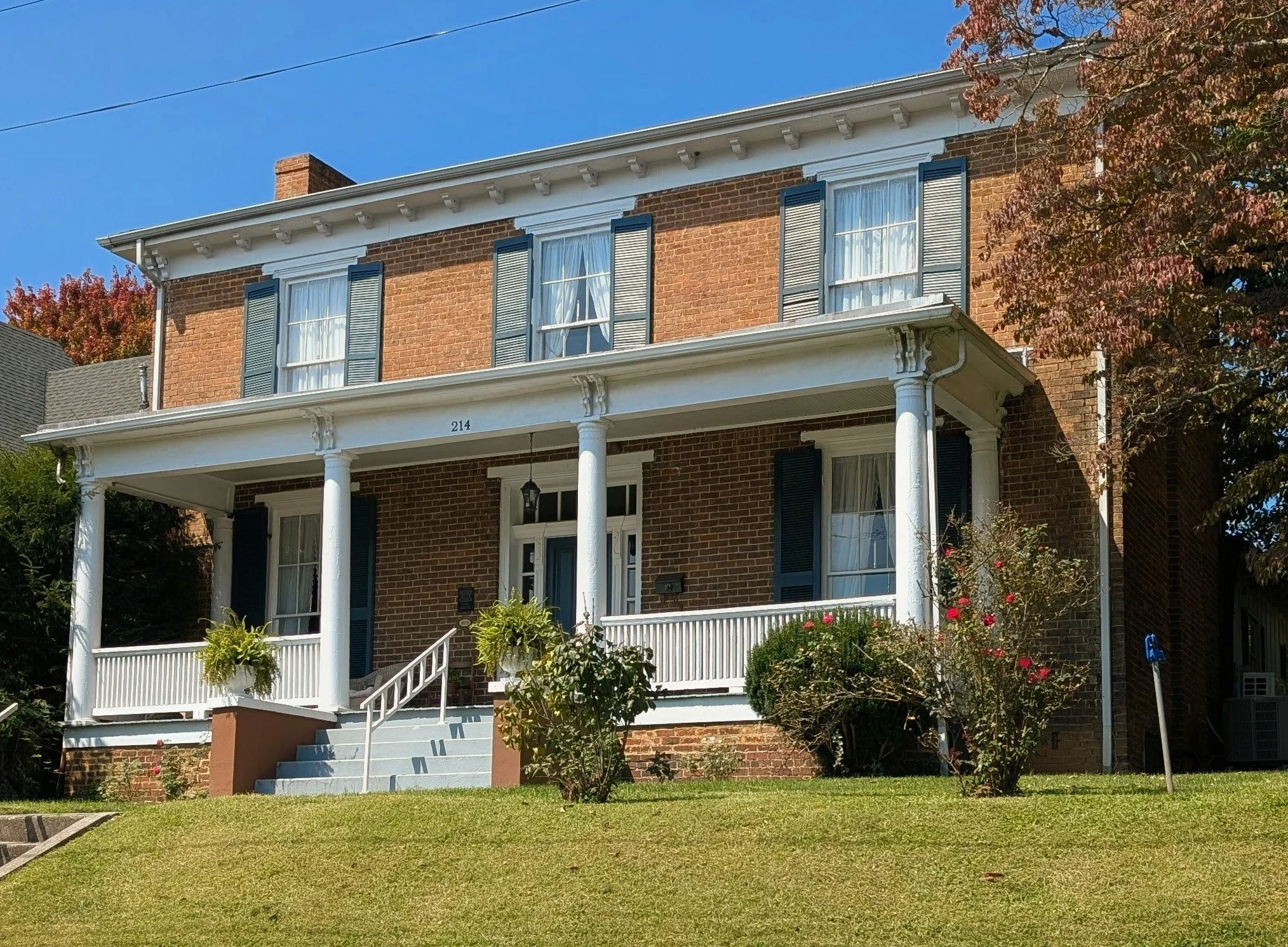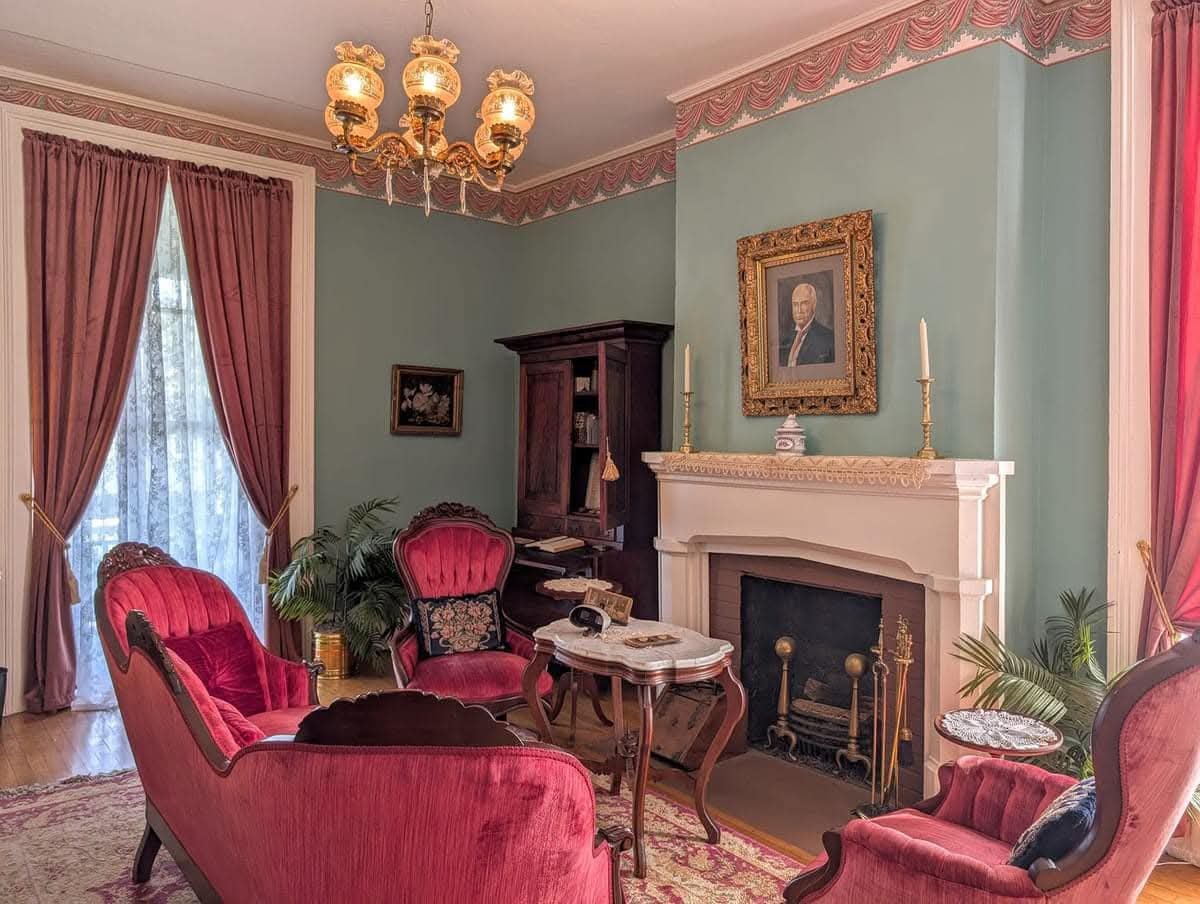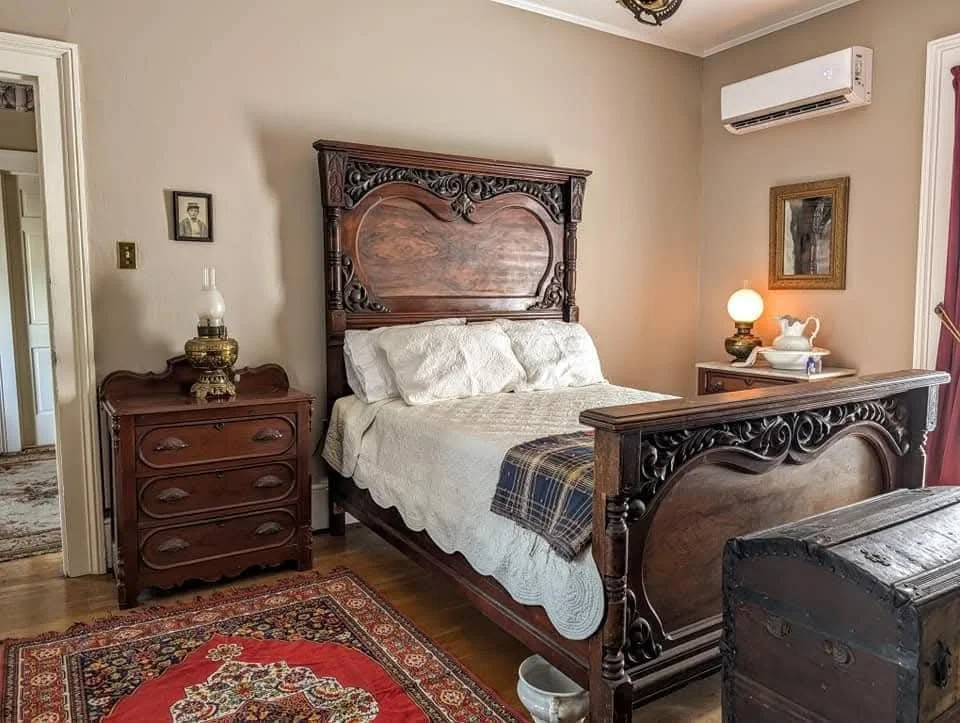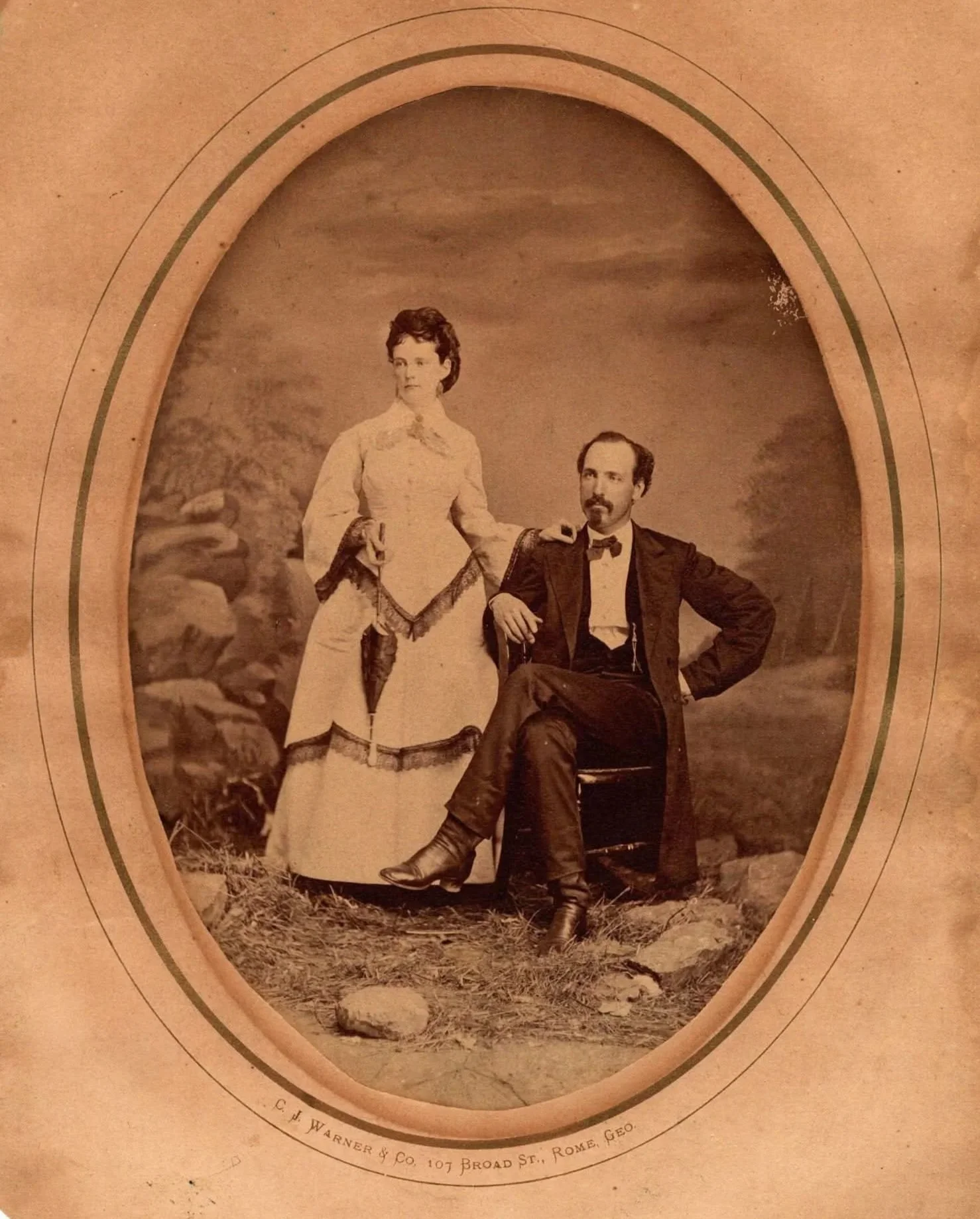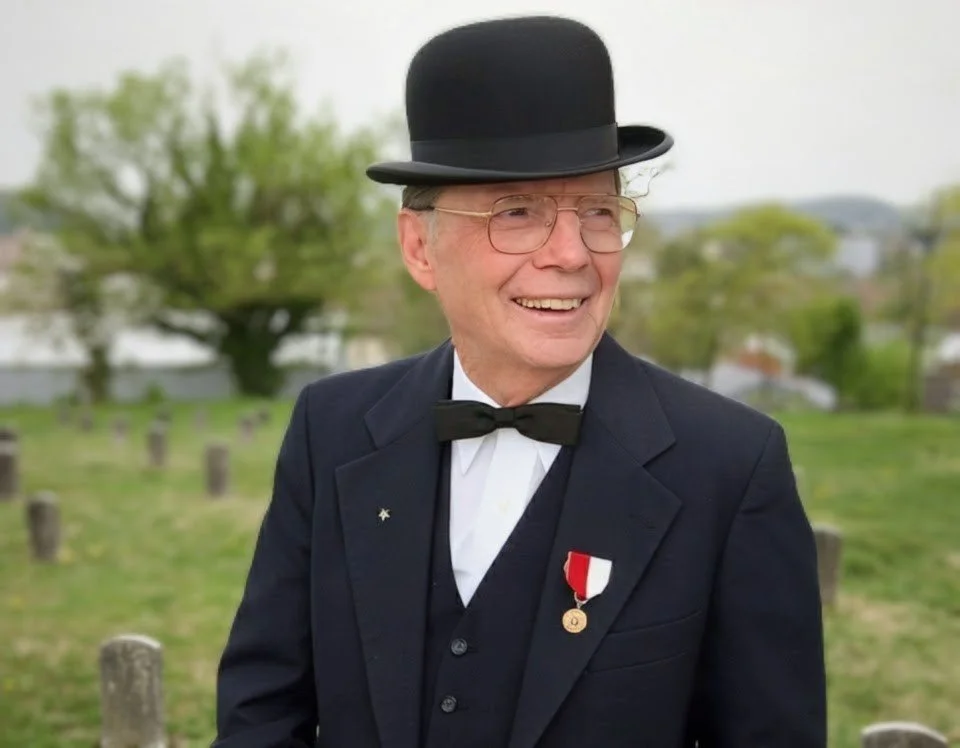
Before we continue talking about the home's restoration, we must first talk about its history and why it is important.
The History
When the summer of 1871 dawned over Bristol, the hills above town were just beginning to stir with change. On July 5th of that year, parcels of land upon Solar Hill were sold, and with them came the promise of grand homes rising above the bustle of State Street. Among the very first was a stately brick residence, christened Pleasant Hill, its foundations laid by William H. Smith for the prominent attorney, Captain James Harvey Wood. The neighbors marveled that the bricks—each one costing a cent to make and a cent to lay—multiplied into towering walls that seemed destined to endure.
By spring of 1873, the Woods had moved into their new home. It was a proud house, two full stories of brick, its lines a marriage of Greek Revival dignity and Italianate flourish. Wide windows with plain lintels looked out upon Johnson Street, while a shallow hipped roof and bracketed cornice gave the place a touch of the fashionable. In time, the family added a full veranda across the front—a porch broad enough for speeches.
And a speech there was. Jefferson Davis, former President of the Confederacy, came through Bristol in 1873, and by tradition it is said he spent the night at Pleasant Hill. The next morning, he stepped out upon that very portico and addressed a crowd that gathered in the yard and street, listening with rapt attention. For years afterward, old-timers would tell their grandchildren, “I heard Jefferson Davis at Pleasant Hill.”
Life within the house was no less remarkable. Lightning once struck a chimney, shaking the family but sparing the walls. Bristol’s first telephone was installed in one of the rooms—what is today called the dining room—so that voices could carry from Pleasant Hill to other corners of town before anyone else could claim the marvel.
The years passed, and sorrow touched the home. The Wood's’ son, young Vernon, drowned in a creek at 12 years-old. Captain Wood’s first wife, Laura Lucretia James, died in 1891. He remarried, and built a new Victorian dwelling next door. The old home he bestowed upon his daughter Mary and her husband, Samuel Harris, so that the name Pleasant Hill continued in family hands. For a time, it even served as parsonage for State Street Methodist Church, the quiet of its halls broken by the prayers of ministers and the laughter of children.
By the twentieth century, ownership shifted, and the house knew seasons of being let and lived in by many. Yet Pleasant Hill remained a cornerstone of Solar Hill, its brick still sound, its porch still catching the morning sun.
Then, in 1982, a new chapter opened. V. N. “Bud” Phillips, Bristol’s own beloved historian and storyteller, purchased Pleasant Hill. With care and devotion, he restored its dignity, filling its rooms with memories, antiques, and the stories of the people of Bristol. For more than three decades, he lived there, writing, welcoming guests, and reminding all who came that history was not something far away but alive in the very bricks of the house.
When Bud passed in 2017, the old home might have grown quiet again. But Providence was kind.
Pleasant Hill
The Museum You Can Stay In
When Monica and I lived on Johnson Street, we were always drawn to the stately brick home across the way. Unlike the ornate Victorians that surrounded it, this house stood apart with its Greek Revival symmetry and quiet dignity. That house was Pleasant Hill, built in 1872—a landmark rich with history and meaning for Bristol.
When the town historian and author who had long made it his residence passed away, Pleasant Hill was put up for auction. The word around town was that it might be turned into apartments, chopped up and stripped of its soul. That was until two remarkable women—Florence Frocarossi and Denise Ballard—stepped in and saved it.
I still remember telling Florence, when Monica and I first moved onto the street, “If you ever decide to sell, we want it.” One evening, my phone lit up with a message: “Are you home? Can I come over?” As many times as Florence had visited, something in my spirit told me what this was about. Sure enough, she and Denise were ready to pass Pleasant Hill on to us. We didn’t hesitate. We jumped at the chance—and we’ve never looked back.
Of course, taking on such a house requires more than love. We are not wealthy patrons who can collect old houses simply for the joy of it. We knew Pleasant Hill had to be preserved and made sustainable. That’s when the idea struck—why not create a period house museum where guests could actually stay? A short-term rental that felt like stepping back into the 1870s.
The Restoration
Compared to others we’ve done, Pleasant Hill’s restoration was mercifully kind. No rotted floors to replace, no shattered windows, no hideous carpet to rip up. Bud Phillips—the historian who lived there for decades—had done much to keep the house sound, including a front porch restoration and a thoughtful rear addition. Florence and Denise had lovingly cared for the house and grounds as well. Their stewardship gave us a priceless head start.
That said, the house still had one glaring shortcoming: no central heat or air. With its solid brick walls and low floor joists, this was no easy challenge. But thanks to our friends at Burnette Heating and Air, Pleasant Hill now has the comfort it deserves.
From there, we turned to plaster repair, fresh paint, window restoration, new flooring in the addition, a kitchen renovation, and the creation of a laundry room. Once the bones were sound, we shifted our focus to the soul—the furnishings.
It took nearly two years to curate Pleasant Hill’s interiors. We wanted every detail to reflect the years around its construction—1872 to 1880—while honoring the Wood family who built it. The Woods named the house after their family home in Gate City, Virginia, and seemed to prefer tradition. Though Pleasant Hill was brand-new in 1872, it looked older by design. We imagined they would have filled it with both fashionable Victorian pieces and family heirlooms.
Today, you’ll find furnishings from the 1830s through the 1870s—some original antiques, some reproductions, many family pieces that belonged to my mother. Period light fixtures glow in the parlors, musical instruments stand ready in the sitting rooms, and every corner tells a story. The result is an atmosphere both authentic and deeply personal.
Since opening, Pleasant Hill has welcomed guests from across the country and beyond. Time and again, they remark on the beauty, the care, and the sense of history that embraces them when they walk through the door. Their appreciation means the world to us.
For us, Pleasant Hill is more than just a house. It’s a museum you can stay in, a bridge between past and present, and a testament to what can be accomplished when love, vision, and community come together to save a piece of history.
